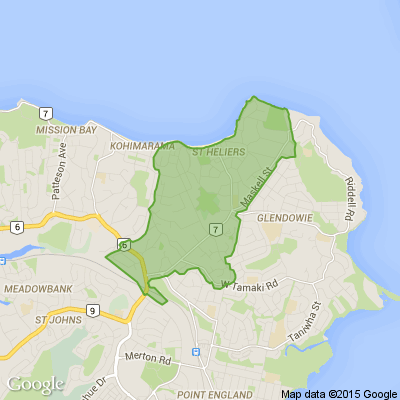Mental Health Check In
Hi 🙋🏻♀️ just checking in to see how each of you are doing this week?
Life and circumstances may not always go the way we intend for it to go and may leave us feeling disillusioned, hopeless,weary etc....If you find yourself in a place of need and would like to talk to someone, you can contact me through Neighbourly or call/text me on 021 080 74719
~ Local Chaplain Corriena

Poll: Is it rude to talk on the phone on a bus?
Buses can be a relaxing way to get home if you have a seat and enough space. However, it can be off-putting when someone is taking a phone call next to you.
Do you think it's inconsiderate for people to have lengthy phone calls on a bus? Vote in the poll, and add your comments below.

-
64.1% Yes
-
33.3% No
-
2.6% Other - I'll share below
Crack This Riddle and Brag All Day!
I’m full of holes but strong as steel. What am I?
Do you think you know the answer to our daily riddle? Don't spoil it for your neighbours! Simply 'Like' this post and we'll post the answer in the comments below at 2pm.
Want to stop seeing riddles in your newsfeed?
Head here and hover on the Following button on the top right of the page (and it will show Unfollow) and then click it. If it is giving you the option to Follow, then you've successfully unfollowed the Riddles page.

Uplands Kindergarten
ENGAGE workshop Thursday 28 November 7.30pm at Uplands. Everyone welcome and your friends are welcome too. RSVP by 25 Nov please.
Please see below for more detailed information about ENGAGE.
Engage is an evidence based approach that supports the development of children's self regulation skills through play - to support positive behaviour and learning outcomes at school, and contribute to positive life course outcomes through adolescence and into adulthood.
Engage focusses on three domains of self regulation: emotional (feeling), cognitive (thinking) and behavioural (doing). Engage also emphasises the use of language - to enhance the effectiveness of games for self regulation, and to support positive language development in early years.
Self regulation skills help us to control our emotions, thoughts and behaviours - our feeling, thinking and doing skills. Self regulation skills help us to: remember instructions, juggle two of more tasks at once, keep going with difficult or frustrating tasks, resist the temptation to do something that might not be good for us, wait for rewards, take turns, work well with others, recognise and manage our feelings, deal with difficult emotions (anger, fear, anxiety, frustration etc) and more.
Children use self regulation skills every day, whether it's sitting long enough to listen to a story, remembering a list of instructions and sticking to them, being able to take turns in the playground with other children, or recognising when they are frustrated and stopping themselves from hitting.
A child's behaviour is often a result of how their self regulation skills (feeling, thinking and doing skills) respond to the challenges they face in everyday situations (fear, surprise, frustration, excitement, confusion, anger, hunger, tiredness etc).
Self regulation is a skill, and skills can be improved with practice. People with strong self regulation skills make better decisions more often, and are able to function more effectively in a wider range of situations - leading to more positive outcomes across their lifespan.





 Loading…
Loading…








